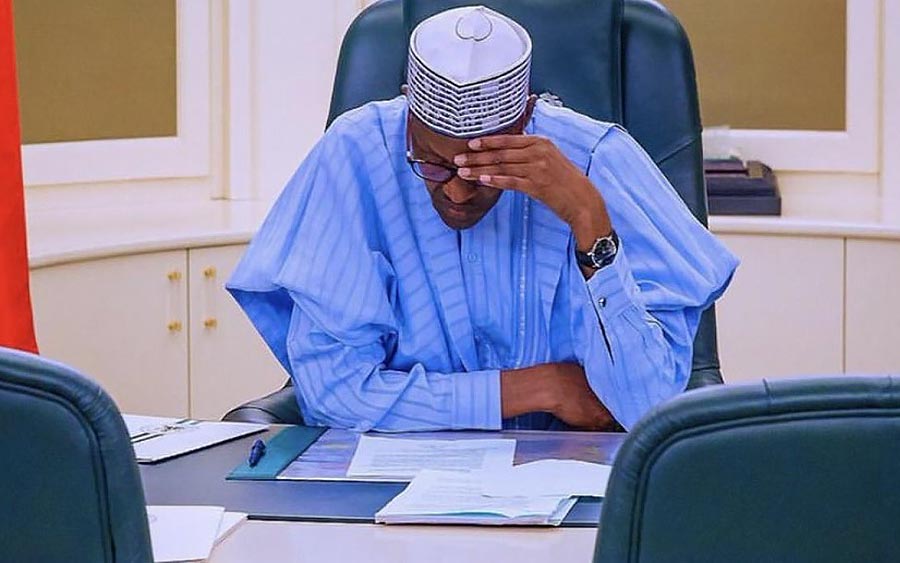Fitch, an international credit rating organisation, has downgraded Nigeria’s economic outlook from stable to negative while affirming the B+ rating.
In a fresh report obtained by Nairametrics, Fitch stated that the downgrade of Nigeria’s economic outlook is traceable to the disruptive macroeconomic policies under the administration of President Muhammadu Buhari.
According to Fitch, the downgrade of Nigeria’s economic outlook reflects the increasing vulnerability from the current macro policy setting in Nigeria, Central Bank’s complex regulatory measures, rising country’s debt, low fiscal revenue and uncertainty in governance.
Vulnerability in Nigeria’s macro-policy settings
In the report, the American rating firm stated that the increasing vulnerability from the current macro-policy setting has raised risks of disruptive macroeconomic adjustment in the medium terms and continued a real appreciation of the Naira.
- According to Fitch, a sharp devaluation of the exchange rate under the current policy framework would stoke macroeconomic volatility and significantly weaken some of Nigeria’s key credit metrics, including its GDP per capita.
- Fitch also noted that the substantial real appreciation of the naira over the last year appeared uncorrelated with macroeconomic fundamentals and was set to continue, driven by high inflation.
- It was stated that commodity terms of trade had deteriorated somewhat and would decline further, weighed down by lower oil prices.
[READ MORE: Nigeria’s economic growth lower than non-oil dependent nations- IMF)
Central Bank’s unconventional Policies
While providing further details on the state of the Nigerian economy, Fitch delivered an assessment of the policies on the Central Bank of Nigeria (CBN). According to Fitch, the CBN is striving to maintain a stable nominal exchange rate through an array of unconventional and economically costly policy measures.
- First, Fitch noted that major risks stemmed from the central bank’s policy of attracting portfolio investments in its short-term Open Market Operations (OMO) bills through high yields and hedging instruments offered to non-resident investors at low cost, despite a wide margin between the naira and dollar interest rates.
- As a result, non-resident holdings of the CBN’s OMO bills soared to $17 billion by end-August, equivalent to 40% of foreign-currency reserves at the time.
- The credit rating organization noted that challenges to the durability of the current policy setting were underscored by increasingly complex regulatory measures taken by the CBN to reconcile attracting foreign investments in OMO bills and spurring bank lending.
- Fitch further noted that the Central Bank has also recently limited operations in the OMO to banks only, and separately imposed a floor on bank loan-to-funding ratios to support credit growth.
- Hence, it was disclosed that lower OMO market liquidity due to a narrower range of participants is likely to have dampened net portfolio inflows, contributing to a 12% drop in FX reserves in November.
Current Account Deficit to persist hits 24 years low
In order words, Fitch disclosed that the Current Account (CA) balance had shifted to deficit from a long-standing surplus, pointing to deteriorating macroeconomic imbalances and adding to external vulnerability.
- According to Fitch, the CA would record a deficit of 1.6% of GDP in 2019, its second-weakest level in 24 years, after a surplus of 2.6% in 2018. Meanwhile, Fitch forecasts the CA deficit would moderate to an average of 0.7% of GDP in 2020-2021.
- The rating firm’s also disclosed that foreign exchange reserves in Nigeria would average 4.7 months of CA payments over 2019-2021, down from 6.1 months in 2018.
Rising debts and weak reforms
Fitch further disclosed that debt remains on an upward path in Nigeria while particularly low fiscal revenues and public fund mismanagement constrain the sovereign’s ability to support a rising debt burden.
- Fitch predicts that debt/revenue ratio which is particularly high, at 333% (Federal government (FGN), debt: 777%) in 2019, will rise close to 400% (FGN debt: 922%) in 2021, well above the forecast ‘B’ median of 248%.
- Weaknesses in public fund management are illustrated by rising monetary financing, a large and uncertain amount of government arrears, and a multitude of contingent liabilities on which transparency is poor.
- Fitch forecasts that as Nigeria’s low non-oil fiscal revenues linger, the government deficit will deepen.
- Also, inflation is high and poised to accelerate. Fitch projects Nigeria will average 13% in 2020-2021 from 11.3% in 2019, well above the forecast ‘B’ median of 5% and inflation rates in Nigeria’s main trade partners.
- According to Fitch, the acceleration in inflation will be driven by a host of recently enacted policy measures which include the upcoming raise of the VAT rate, 66.7% hike of the minimum wage, as well as the recent closure of land borders to foreign trade and tightening restrictions on FX financing for a wide range of imports.
[READ ALSO: Nigeria’s Inflation rate drops to 11.02% in August 2019 despite border closures)
In conclusion, Fitch projects average GDP growth of 2.4% in 2019-2021, well below the ‘B’ median of 3.4% and the five-year average demographic growth rate of 2.7%.
Fitch noted that the prospects for supply-side, fiscal and exchange-regime reforms that could tackle the major constraints for Nigeria’s credit profile are weak, as reflected by the record in recent years.
